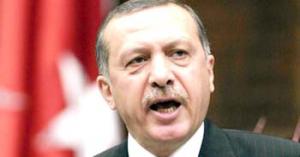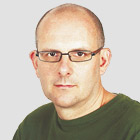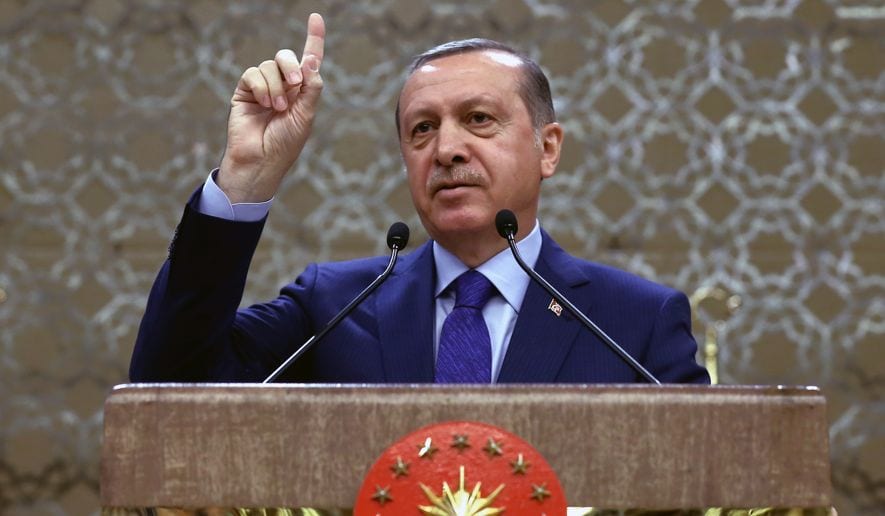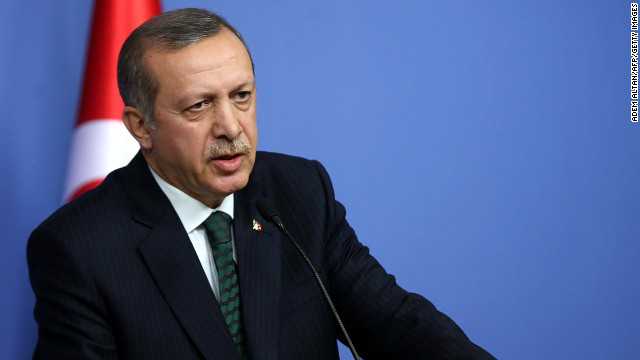By MARC CHAMPION
ISTANBUL—Prime Minister Recep Tayyip Erdogan is one of the most powerful leaders Turkey has known since Mustafa Kemal Ataturk banned men from wearing fez hats. But he doesn’t like being called names.
As he tours the nation promising to deliver “advanced democracy” ahead of the Sunday elections he’s expected to win handsomely, Mr. Erdogan is at the same time suing perhaps hundreds of private individuals for insulting him.
![Call the Prime Minister a Turkey, Get Sued 2 [TAYYIP-AHED]](http://si.wsj.net/public/resources/images/OB-OE930_TAYYIP_BV_20110606202303.jpg) Recep Tayyip Erdogan
Recep Tayyip Erdogan
The alleged offenders include a student theater troupe that does skits wearing long black hippie wigs; unemployed siblings who posted a song about Mr. Erdogan on the Internet; and a British teacher-cum-anti-Iraq war activist-cum-fortune teller, who made a collage showing Mr. Erdogan’s head on a dog.
“This is about the honor of the prime minister,” said Abdullah Guler, the lawyer representing Mr. Erdogan in the theater troupe case, after a brief hearing last month.
Mr. Guler had just accused the students, who couldn’t all fit into the tiny courtroom, of “booing” the prime minister and calling him a “street vendor.” Some of the students giggled.
The hearing was adjourned until June 8.
“Wouldn’t it be a problem [in the U.S.] if I was always criticizing just President Obama?” Mr. Guler said in an interview after the hearing. Mr. Guler doesn’t watch much American TV. He hasn’t heard of Rush Limbaugh.
In a country where court records aren’t generally made public, no one is willing to disclose exactly how many people Mr. Erdogan has sued for lobbing insults at him. In 2005, two years after Mr. Erdogan took office, the tally was 57, according to Turkey’s then-justice minister. Mr. Erdogan had won 21 of the cases, netting a total 700,000 Turkish Lira, or about $440,000, in compensation.
Turkey Election Watch
- Magazine Article Prompts Political Furor in Turkey
- Alcohol and Polygamy Make Headlines in Secular Turkey
- Turkey’s Gays Shift Away From AK Party
- More
See some of the controversial songs. Note: Lyrics are in Turkish.
‘Tayyip Blues,’ by Beyoglu Kumpanya:
‘The Crisis Barely Touched Us,’ by Kubilay Duman, Fatma Aydin and Huseyin Yildiray Duman
See the Penguen magazine cartoons.
Since then, the government has refused to answer further questions on the matter. It said that whomever Mr. Erdogan sues—under article 125 of the Turkish penal code—is a private affair. The law criminalizes insults against a person’s honor, differentiating such barbs from other protected free speech. Guilty parties face a maximum penalty of two years in jail.
Mr. Erdogan’s spokesman didn’t respond to several phone and email requests for comment.
Fikret Ilkiz, a prominent Turkish press freedom lawyer, says the frequency with which the prime minister’s lawyers launch insult suits on his behalf has increased since 2005. By now the tally is “in the hundreds,” he estimates, and has triggered a boom in lawsuits launched by cabinet ministers and legislators. Mr. Ilkiz added that previous prime ministers rarely used article 125.
Ataol Behramoglu, a Russian professor at Istanbul’s Beykent University who is also a published poet and ardent secularist, thinks Mr. Erdogan sues as a matter of cold policy. “They want to discourage us from speaking out. It’s ridiculous, but it sows fear,” he says.
Last year on a TV show called “Neutral Zone” the professor said that he believed Mr. Erdogan’s ruling Justice and Development Party, known as AKP, would use every means, including “illegal and antidemocratic ones” to win the election. Both Mr. Erdogan and the party sued. A judge dismissed the case at a hearing May 25, citing freedom of expression.
The prime minister doesn’t spend his time combing the media for affronts, defense lawyers say. Rather, loyal followers around the country bring word of insults to him. That’s what happened in Catalca, a town about an hour’s drive from Istanbul, where the Beyoglu Kumpanya theater troupe’s Emre Yalcin sang “Tayyip Blues” in the street at a local festival.
AFP/Getty ImagesRecep Tayyip Erdogan delivers a speech during a campaign meeting on June 1.
“Privatizations, all the pressure…Always hand in hand with the USA…You are a street vendor Tayyip,” the song went. Some people in the crowd got upset. The local AKP chief ran backstage, looking for Mr. Yalcin. But the troupe had already donned wigs, making its members tough to recognize.
“Who sang that song?” The branch chief kept shouting, recalls Merve Umutlu, the troupe’s 24-year-old organizer. “Who is the one who sang that song?”
Famously, Mr. Erdogan once sued a newspaper cartoonist for portraying him as a cat that got itself tangled up in yarn. He lost that case; the judge said a prime minister should “tolerate this type of criticism, as well as applause.”
Mr. Erdogan had more luck in 2006, when he sued a British teacher of English. Michael Dickinson, an Istanbul resident of 24 years, had made a collage that put Mr. Erdogan’s head on a dog’s body, as U.S. President George W. Bush pinned a rosette on him. The picture was called “Best in Show.” Mr. Erdogan didn’t agree. A court dismissed the case, but four years of litigation later, the prime minister won a final judgment.
Marc Champion/The Wall Street JournalEmre Yalcin and Merve Umutlu were charged with insulting Mr. Erdogan.
“He ruined my life,” Mr. Dickinson said of the prime minister. Sitting at a restaurant recently, he pulled the collage of Mr. Erdogan as a dog out of his bag. Waiters at the restaurant grabbed it to show their friends. They thought the dog picture was hilarious.
Mr. Dickinson was sentenced not to make pictures of Mr. Erdogan for five years, or face jail time. Having spent three days in a jail cell with two accused murderers after his arrest in the case, he decided not to go back. But he lost his job and now makes a living telling fortunes.
In 2009, Kubilay Duman and his brother and sister posted a song about unemployment on the Internet. They were angry about their own jobless plight. “The hand of a thief robbed my country/The crisis barely touched him, praise be to God,” the siblings sang. The song got 300,000 hits in the first week, Mr. Duman says. So the siblings made an album. Mr. Erdogan sued and in February they each got 10-month jail sentences. They are appealing, and Mr. Duman is depressed. He says the album was never distributed and that no one will give him gigs.
Meanwhile, the litigation boom seems to be spreading to the campaign trail. Mr. Erdogan has called the main opposition leader, Kemal Kilicdaroglu “a walking lie machine,” as well as “shameless, immoral and low-down.”
On Thursday, Mr. Kilicdaroglu said at a rally he would sue Mr. Erdogan. “Let him give an account in court.”
—Ayla Albayrak contributed to this article.











